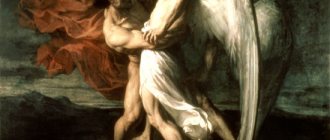The words “I believe you” are at the core of social connections. It is “I believe”, not “I know that you are telling the truth.” Of course, the second would be more convenient, but the fact of the matter is that when it comes to another person, knowledge is impossible.
Therefore we need to believe. So that families exist, schools work, doctors treat and transactions are made (by the way, money circulation itself is based on the same faith - how else could we exchange colored pieces of paper for something useful?). In a word, so that we can live together.
But a contradiction arises. We want to take their word for it, but remembering the deceptions we have experienced, we are forced to be on our guard. Every day we set out on this voyage between Scylla and Charybdis, again and again finding the balance between unconditional faith and total skepticism. Alas, it is becoming increasingly difficult to believe. After the tragedy in Krymsk, talk continued for a long time that the city was deliberately flooded by opening the floodgates of the reservoir.
And a few hours after the meteorite fell, a well-known publicist sarcastically inquired about its “tail number,” giving rise to a lot of speculation about the testing of a new weapon and an accident at a missile test site. There is also no faith in public and state institutions: 61% of respondents do not approve of the activities of the Duma, 57% do not approve of the work of the chairman of the Central Election Commission, and a quarter of the country’s population does not trust any politician4. The balance of faith and mistrust has shifted dangerously towards skepticism. And perhaps it is already close to that very critical threshold.
We are what we believe in
– There are only a few non-believers and conscious atheists. Most people in the world are believers. Some of them don't even realize it. The question is what they believe.
A person’s faith determines his destiny, influences his future, his consciousness and subconscious, builds his reality, and shapes his personality. We are what we believe in.
The pagans are like their gods with primitive needs and animal instincts. The mystical ideals of Taoism and Indian philosophy lure people to immortality on earth through occult practices and alchemy.
Some Orthodox Christians, forgetting that they are children of God and their destiny is eternity, believe in healers who must cure them at all costs, believe in predictors who indicate what allegedly awaits them in the future, thereby showing a deep distrust of God’s Providence.
In search of the absolute
So, we live in a society, and therefore we need to trust other people. We compete with each other and, therefore, must be armed with self-confidence. But there is a third aspect of faith. Both social connections and victory over competitors are important only insofar as we see some meaning in life itself. Does he exist? Or are we in this world for no reason? And what happens after death?
We can only attempt to answer these questions by relying on faith in something that is greater than us. This is where faith in God and moral convictions converge. For some, the absolute is God as a person. For others, it is an immanent essence, cosmic energy. Still others are content with a moral code, the ideals of brotherhood, and the sanctity of human rights. In any case, our belief in higher powers and principles provides us with comfort and gives meaning to our lives.
Safety precautions
In a society where there is no true faith and worship of the True God, but there is self-worship, where the goal of life is not holiness, but hedonism and consumerism, shameful things are legitimized, which, according to the word of the Apostle Paul, are shameful to even talk about (Eph. 5:12 ).
In some countries, for example, it is proposed to prohibit calling your parents “father” and “mother” because these names allegedly manifest gender discrimination.
It seems that what could be more absurd than the belief that you can overcome your own gender? But these people are trying to impose their opinion on others, to convince them that this is natural, that this approach protects their civil and “moral” rights. And how many fooled people believed the slander and manipulation.
Another danger is reckless faith. Today, when there is a large-scale substitution of truth for lies, when fakes and disinformation have become the norm, and the news lately often does not reflect reality, it is important to remain sober. The truth of life is that it is better to doubt once again and double-check what you hear before spreading the news.
Orthodox circles also have their own so-called fakes. For one parishioner, myrrh appeared on the icon and flowed straight like a stream, for another, her face was crying, for a third, an image appeared on the glass... And here it would be worth remembering the Scripture: “Do not believe every spirit” (1 John 4:1) and “an evil generation and the adulterer seeks a sign” (Matt. 16:4).
It is very important to follow safety precautions: do not immediately believe everything and catch the sensation, check the information in other sources, consult with a priest. Christians must correlate all information with the Holy Scriptures in order to avoid erroneous conclusions.
What difference does it make in whom exactly to believe - in Christ, Vishnu or the Higher Mind?
Estimated reading time: 9 min.
The book “The Mysteries of God” contains questions that have haunted the minds of great thinkers for thousands of years: if there is a God, then what does He want? Does He have plans for a specific person and for all of humanity in general? How can one call Him good if children and innocent people suffer and die in the world He created? If thousands and millions die in disasters? It seems that for believers these are the most inconvenient questions, and they are unlikely to be able to answer them clearly and convincingly for an ordinary person. But the authors of the magazine “Foma” decided to do it.
Reader's letter:
Why do I believe but not be religious?
First, let's separate the wheat from the chaff. Faith is a human need, completely natural and clear. Believing is a way to understand, experience and taste the world around us. It doesn’t matter what you call what you actually believe in—God or, say, the Supreme Mind—what matters is that the soul works. Neither in regular trips to the temple, nor in the daily reading of prayers does God manifest itself in a person. This is external. And God manifests itself in a person from within, and it is called conscience. A conscientious person who reflects - that means he has that same divine spark in him. In my understanding, if a person notices the imperfections of the world and prays that they do not exist, this is laziness. If a person sees shortcomings in the world and strives to correct them with action, this is faith. So in this sense, I am a completely religious person.
A believer - but not religious. Religion is a human invention invented to maintain social order. Bridle. More often - a strict bridle: he pulled - everyone crouched down in fear.
In general, the idea of dividing God into religions seems strange to me. I don’t care at all what his name is - Jesus, Allah, Vishnu or Sergei Vasilyevich, I don’t care what he might look like - whether he wears a turban or a perky bikini with strawberries. What is more important is the understanding that everything that happens around is not a random chaotic process, but a System. System of patterns and miracles. Therefore, God is not the “guy” from the Old Testament and not the “guys” from the Mahabharata. God is an essence above all names and personifications.
...Of course, this is all personal. There is probably something surprisingly good in the religious system that I do not see - either due to lack of intelligence, or due to insufficient education or excessive narrow-mindedness. But I see it like that. Religion is alien and scary, faith is necessary and natural.
Tina N., online community “Live Journal”
First Deputy Editor-in-Chief of the Foma magazine Vladimir Gurbolikov answers:
Vladimir GURBOLIKOV
It seems to me, Tina, your definition of faith is too general. You can “taste” the world around you through sensations and mental movements, which do not necessarily imply faith. A person is able to live a “full life”, taste grief and joy, love and hate; he can create, be a magnificent artist, writer... And at the same time have no faith, consider everything that happens to him to be the fruit of his desires, luck or bad luck, and nothing more.
But faith is different. First of all, the confidence that life has a special meaning, that there are various values inexplicable by natural, biological, and sociological reasons. You can be an atheist, think: I will die, disintegrate into molecules and atoms... but believe that my children will live under communism. And for the sake of this communist tomorrow, kill or go to death. But you can believe differently... When Christ says: whoever lays down his life for Me and the Gospel will save his soul - how to understand this? After all, the very phrase “salvation of the soul” has no meaning outside of faith! And someone believes that there is a soul, and that one can live and die for the sake of Christ, and this is the highest meaning of life.
All this is faith. And at first glance, it really seems: what you believe in doesn’t matter. At one time I myself was interested in Tolstoyism, Roerich, and the Gospel. It was enough for me that, unlike science, which answers the question “how does the world work?”, there is faith with its own question: why does the world exist? And the answer to this “why” is God. We live, the Universe is filled with galaxies, the Sun burns, grass grows - and God is everywhere. It seemed to me that the rest was a figment of human imagination. And that it doesn’t matter how you believe, what you believe. I looked with delight at the world as an endless treasury of magical wonders and secret signs and reveled in my spiritual breadth. But as soon as I came across religious faith, with faith as an institution, I immediately began to despise it.
I considered my Orthodox friends to be monstrously ignorant (although they were smart and educated people). When I heard that they communicate with God, considering Him a Person to whom they can say “You,” I internally laughed. My upbringing did not allow me to argue with them, but it seemed to me the extreme primitiveness, the greatest naivety.
This is how I thought about Christianity, which - regardless of how one views Christ - is certainly an example of deep faith. And here’s the paradox: it turned out that as soon as I came into contact with Christianity, for some reason I began to care how to believe and what to call God.
I took a boxing stance: oh, you primitive clerics, how dare you appropriate God to yourself!.. It turned out that I did not want to see Him through the eyes of the Orthodox, Muslims, and Jews. And preaching a “universal God,” I turned out to be not a universalist at all, because I constantly rejected the God of the Bible, the Gospel, the Koran...
It seemed to me that the truth was on the side of my wise friends, who equally revered Christ, Tolstoy, and Roerich. It didn’t bother me that Lev Nikolayevich, for the sake of his ideas, shamelessly scribbled out the New Testament and removed from there everything that he didn’t like. It was “obvious” to me that Roerich carried the true light of the united faith of the West and the East - and it didn’t bother me that his high-mountain teachers enthusiastically wrote to “Mahatma” Lenin... And when I finally thought about it and asked my Agni Yogi friend, how Lenin, who exterminated the priests, turned out to be a “Mahatma”, then he heard: because, having put an end to the omnipotence of Orthodoxy, he cleared Russia for the future “enlightenment” coming from the East. And for some reason, for the first time, I did not experience admiration for such a breadth of views...
A lot of time passed and we talked again, but I was already Orthodox. And I told my friend with pain: after all, in India, where your fellow believers are going, many of them die during their ascetic experiences! They are dying, from your point of view, without salvation! “Yes, they are dying,” my friend agreed calmly.
His voice didn't waver. Because he firmly believed that those who were not saved would “only” have one more reincarnation, a new life, and so on until they left the wheel of samsara. And I - I was already convinced that these people were deprived of the main thing - the one life given to them for salvation. I was scared and sad. And to my friend - not at all...
***
Faith is a general concept. But then abysses and faults begin. Yes, we all pray, seek love and salvation. But to whom do we pray? How do we understand the meaning of the word “love”? What is the tea of salvation?..
I cannot agree that Christ and the goddess Kali, for whom hundreds of thousands of people were sacrificed (strangled) are one and the same! You can, of course, recall the victims of the Inquisition - yes, this happened in the history of Christianity. But the conscience of Christians is still uneasy, and this in itself is evidence of difference. The conscience of fans of the monster with a crocodile head cannot hurt! - they accept him as he is. And Christ Himself, with all His thoughts and deeds, leads to the fact that slavery is bad; that a woman is not inferior to a man; that there should be no division into “Greeks” and “Jews”...
A person, believing, tries to take an example from the object of his faith. And the one who loved the Fuhrer of the “great Reich” will look at things completely differently than the one who loves the crucified Christ.
This may not be so easy to explain right away, in one conversation.
It is equally difficult to immediately convince that it is impossible to invent the same Christianity with the human mind. You know, the expression “I believe because it is absurd” is attributed to Tertullian. He does not have this phrase directly, but he and many other apologists in the very first centuries of Christianity said: look, our faith is true, because it cannot be invented!..
***
Confusion about such a God was present in other times, among other peoples. Here is a dialogue from the novel by the mid-twentieth century Japanese writer Shusako Endo Samurai." The novel is dedicated to the events of the 17th century, when, on the eve of the persecution of Christians in Japan, the last Japanese delegation left for Europe. Along the way, the samurai visited Mexico. And in this episode, the writer depicts a meeting of the main character of the novel with a Japanese man, who at one time converted to Catholicism, became a monk, moved to Central America, but here he fled from the monastery, seeing how the Spaniards beat and tortured the Indians.
However, contrary to the expectations of the Samurai, the Japanese remained a believing Christian. And so they talk about Christ:
“No, I can’t stop thinking about this Man,” the Samurai whispered in an apologetic tone.
- It doesn't matter. Even if you don't give Him your heart, He will still give you His.
- I can live without it.
- Are you sure about that?
The former monk looked at the Samurai with pity, fiddling with a sheet of paper in his hands...
- The one who cries is looking for someone who will cry with him. The one who laments is looking for someone who will listen to his lamentations. No matter how the world changes, those who cry and groan will always cry out to Him. This is why He exists.
- I do not understand this.
- Someday you will understand. Someday you will understand this.
By the way, this passage from the novel by Shusaku Endo sometimes keeps me from despair - if for some reason I am suffering. After all, suffering is also a path. It makes me raise my head and see that there is a single purpose in my life, for which only I can live and die one day.
Christ comes not to the prosperous, but to the crying and suffering. And this has a deep meaning. Suffering can lead to truth; something very important and deep is revealed to a person in the experience of suffering. Believe me, I’m not talking about what I read in books, but about real experience, about what I felt, as they say, “in my own skin.”
When the longing for love and compassion reaches its extreme point, no other god can come and be with me. Only Christ. And I am not ashamed before Him for my weakness.
Faith is paradoxical. Moreover, this is not a bare statement. If you read the text of the Gospel with an open mind, you will be convinced that not only the Romans, but even the disciples of Christ themselves, the apostles, could not understand much of what was happening. Hence Thomas’s disbelief that Christ was truly resurrected. Gospel history “from the inside,” from the point of view of its direct participants, the apostles, was, at least before the Resurrection, a series of events that were not logically linked to each other. They were comprehended not by logic, but by the heart and living faith. The Pharisees, very pious people, but logical, spiritually prudent, ultimately hated Christ completely: their entire logical system collapsed before Him, all their authority, all their instructions. The Savior turned out to be “not the same” as the Pharisees imagined Him to be!..
I don't know if it's possible to come up with a story like this. In all the works of literary genius, despite shocks, moments of surprisingly strong empathy with the author and characters, I still have not come across anything written that could be so believed. The gospel is unique. But it doesn’t even have a single author - but why is there the same power and authenticity everywhere, regardless of the name of the narrator or the author of the message? Where?..
You may ask about the sacred books of other religions... Perhaps there are also the same incredibly living things. And it is quite possible that all of them are also not the fruit of the author’s imagination, but a revelation sent from the other side. But for me, in this case, not only the fact of the manifestation of the beyond is important. Before I respond to the call, I must understand exactly whose voice is calling me.
Why is that? When people begin to say that everyone has one God, I, as a Christian, ask myself: how can I combine my faith in Christ God with the point of view of Eastern faiths, for which tears and pity are a manifestation of weakness, one of the lowest traits of adherence to earthly passions ? Christ cried in front of the grave of His friend, Lazarus (whom he resurrected a minute later)... What is this - the highest manifestation of love, or weakness unworthy of a Supreme Being? There is a Buddhist parable about how the mother of a deceased child came to Buddha to ask for help. He agreed, but on one condition - that she would bring him a handful of land on which no one had ever died. The woman searched and searched and realized the naivety of her dream. Compare this with Christ, who raised a dead girl (Gospel of Mark, chapter 5, verses 35-42). How to combine one with the other? Shouldn't this be important to me, a Christian?
Yes, every religious system has a belief in a higher power, but that higher power comes in too many different guises for one to be complacent. A person becomes like exactly what he believes in! If he professes the cult of the goddess Kali, then he submits to the terrible beauty of a carnivorous creature that demands human lives, he becomes a priest-strangler of people. What does this have to do with the Christians' idea of their God? Maybe conscience works differently?
After all, a person is ashamed for a reason! Conscience is like a wave, a radio transmitter, and the source of the signal, the “voice of the announcer”, is the one in whom you believe.
A Nazi, confident that Aryans are superhumans and foreigners are subhumans, can be sincerely tormented by his conscience for speaking harshly to his Party Genosse. And at the same time, calmly send “Jews” and “communists” (regardless of gender and age) to the gas chamber. Why is conscience silent? Because “at the other end of the line” is not Christ, but the Fuhrer. If we recognize the unity of One and the other, it will be even more absurd than the statement that Pol Pot and Mahatma Gandhi are one and the same, since both were politicians.
To say that the gods that people worship are one means to admit that it makes absolutely no difference who is in front of a person’s eyes - a creature thirsting for blood, or a Martyr who shed Blood for us on the cross. Agree, in order to come to terms with this, you need to break something in yourself. But I can't do this. I don't want to either.
This is impossible. Impossible. And precisely because faith, contrary to your statement, is never lazy. It combines prayer and the desire to transform the world. A desire of such incredible strength that both power and the elements retreat before it.
Which of our compatriots prayed more than most? Sergius of Radonezh? Seraphim of Sarov? But the first one built the monastery with his own hands; he, together with the princes, decided on the question of whether there should be a Battle of Kulikovo! And the second one is not “just a hermit” at all. He lived in the Sarov forest with the obedience of the guard of the monastery forest (for which he was almost killed by thieves), worked, received thousands of suffering people...
If you take a realistic look at believers, then be sure to note: those who pray for an imperfect world are definitely trying to change this world. And what can be annoying about religious people is that they are too active! Here is another paradox of faith. The believer is active. Look: in our time, the most active “heroes” are religious extremists of all stripes. Don't they pray? They pray, and how! But the fruit of their prayer only makes us think more seriously: could it be that we have the same God? My conclusion is no, not the same. And I turn to Christ again. The only God, besides Whom there are others - I don’t know.
Drawing by Vera Makhankova
There is discord between disbelief and disbelief.
The nature of the mind is such that it is impossible to insure yourself against thoughts of doubt, but disbelief can be different: superficial or Fomin. Saint Apostle Thomas did not believe not because he could not admit the possibility of the Resurrection of Christ. He, as an apostle, saw the resurrections performed by his Divine Teacher, and remembered His predictions about Death on the Cross and the three-day Resurrection. But Thomas was not a participant in the meeting with the Risen One. Therefore, the words: if I do not see, I will not believe (John 20:25) are a heartfelt expression of the desire to meet Christ and the desire to be a participant in His glorious Resurrection.
“Nobody beat me”: should we believe the confessions of Protasevich and Taramova?
The optimistic statements on camera today made by Roman Protasevich, an opposition activist and journalist who fell into the hands of the Belarusian special services, and Khalimat Taramova, a 22-year-old Chechen woman who returned (or rather, returned) to her parents’ home, are so similar that in printed form, without audiovisual accompaniment, they can easily be confused.
“I feel great. I have no complaints. Nobody beat me... I was treated with the utmost respect... I would like to ask you not to spread further rumors... The place where I am now constantly is, it seems to me, the safest.” This is Protasevich at a briefing held on Monday by the Belarusian Foreign Ministry.
And this is Khalimat Taramova in footage distributed by the Chechen State Television and Radio: “My rights are not violated. I'm fine. There is no pressure on me. Everyone supports me, reassures me... I am outraged by what the media writes about me.” Oh yes, let’s face it, Khalimat didn’t say anything about the “safest place.” But she was supplemented by a cheerful voice-over: “Only in the circle of loved ones does Khalimat feel safe. Slowly she is trying to recover from her experience.”
Let us explain that the “experience” is an unsuccessful escape from the family. “I, Khalimat Ayubovna Taramova, voluntarily left home to escape regular beatings and threats,” the girl says in a video that appeared earlier on the Internet. “Please do not put me on the federal wanted list.”
According to a number of media reports, the girl’s problems are related to her non-traditional sexual orientation. This is, in particular, reported by the Russian LGBT Network, where the girl allegedly turned for help. Khalimat's relatives and Chechen authorities insist that she suffers from a mental disorder. However, we can assume that we are talking about the same thing.
With the help of a friend, Khalimat left for Makhachkala, where she hid for some time in a safe “crisis” apartment. But on June 10, Dagestan and Chechen security forces raided this shelter.
“Thanks to the coordinated and professional actions of law enforcement officers, an attempt to kidnap a person was stopped,” triumphantly reports the Minister of the Chechen Republic for National Policy, Foreign Relations, Press and Information, Akhmet Dudayev. “We are talking about Khalimat Taramova, a girl who has health problems... All this, of course, has been recorded and documented. And it’s no secret to anyone. But even these facts do not stop these provocateurs, representatives of the so-called “fifth column”.
Roman Protasevich at a briefing at the Belarusian Foreign Ministry. June 14, 2021. Photo: Still from video
We will not become like the evil “fifth column”. And to those who claim that Protasevich and Taramova are insincere, talking about their newfound peace and security, admitting their “mistakes”, expressing gratitude to their “saviors”, let us say in response that these non-believers simply do not know how rapid a transformation consciousness can undergo a person cut off from the world of temptations and destructive passions. There are countless examples of this.
“I call on all my friends, family and loved ones to rise up against my real killers - the government of the United States,” said American photojournalist James Foley, captured in 2012 in Syria by Islamic terrorists, a few minutes before his death. “Everything that happens to me is the result of their complacency and criminal intentions... I wish I wasn’t an American.”
And here is what their former comrade Grigory Zinoviev, who was arrested in the case of the “Anti-Soviet United Trotskyist-Zinoviev Center” (a year later, was shot), wrote to Comrade Stalin and his comrades-in-arms: “I get to the point where I stare for a long time at your and portraits of other members of the Politburo in newspapers with the thought: dear ones, look into my soul, don’t you see that I am not your enemy anymore, that I am yours in soul and body, that I understand everything, that I am ready to do everything to earn forgiveness , leniency."
Who knows, maybe captivity itself is a “truth serum”? That it is in such a state, and not in freedom, that a person acquires the true “I” and an understanding of higher truths and meanings? She throws off everything artificial, false, superficial - anti-Lukashism, anti-Islamism, anti-Stalinism, rejection of “traditional Caucasian values”, etc. and so on. - and becomes who he is?
However, this assumption can be verified no earlier than those who unconditionally believe in the confessions of the prisoners and in their voluntariness undergo the same “salvation” from the vanity of the world - with the prospect of complete separation from the mortal world. Now, if these citizens, convinced of the justice of any government, whatever it may be, do not compromise on principles, then yes. Then the theory can be considered proven.
But something tells me that we will have to wait a long time for this. At least until the second coming.
Creator of Beliefs
Shermer calls the search for connections and patterns patterning - from the word “pattern” (sample, pattern). If a person connects two patterns, A and B, with a line, then he establishes a cause-and-effect relationship between them. So, if you associated a rustle in the grass with a dangerous predator and moved away from this place, you would survive, regardless of whether there was a leopard in the grass or not. And if you decided that it was the wind rustling, and there was a real animal hiding there, you missed the pattern and made a mistake of the second kind - believing in the unreality of what is actually real. “And you became lunch. Congratulations, you are receiving a Darwin Award,” sums up Michael Shermer.
Article on the topic
The main thing is not to argue! How to communicate with conspiracy theorists?
The historian also explains why we believe at all. Our brain is the creator of beliefs, a machine for recognizing images and patterns, finding meaning in them and connecting all possible points of existence. Sometimes A is really related to B, sometimes it is not. But from an evolutionary point of view, as the example of man's distant ancestor on the savannah shows, it is advantageous to believe that such a connection exists. This way we can make predictions and select behaviors that will promote survival and reproduction. Primates were particularly good at finding patterns. This skill was strengthened by evolution through natural selection. But our brain, alas, has never developed a mechanism that would allow us to identify errors and misconceptions, automatically separating true patterns from false ones.
Simply put, according to Shermer, it is better to believe in everything “just in case” than to show skepticism by appealing to common sense and boring scientific data. This way we have a better chance of staying alive and passing on our genes to the next generation. Conspiracy thinking is a legacy of the evolution of our brain. It's just how he's designed.
The mystery of Rothschild's death. Is there a plan to restructure life on Earth? Read more
Why do we believe in destructive things?
Let's return to Ukrainian realities. For 23 years of independence, we lived without any consolidating idea, taking as our goal and model the values and ideals of the Western world, which are alien to our mentality. Our intelligentsia (sound-visual part) created tension in society, generated discontent and hostility, promoted nationalist ideas, criticized, destroyed, without offering creative ideas in return.
Part of the Ukrainian audio-visual elite (journalists and cultural figures) have deliberately sold themselves to the golden calf and are working against the interests of their state. They are the ones most to blame for what happened in Ukraine.
What was the result?
We lost what we had. We have lost territories of our country, and we will probably lose more. We destroyed the country's economy with our own hands and continue to move towards default. We have lost the most precious thing we had - peace. We allowed our country (which seemed to be the most peaceful) to be plunged into civil war. We are used to the fact that people die every day. We are no longer surprised by tanks, armored personnel carriers, military operations...
WE HAVE LOST THE WORLD...
The funniest and saddest thing is that the sound-visual part - the same one that created the idea of destruction - does not offer anything in return
. Therefore, we are not going to create, we have no ideas about this. We have no other choice but to entrust the creation of a “better future” on the ruins of the present to politicians of the same dubious quality that we have always had (all these 23 years).
Why do people believe them (not everyone, of course, but many do)? It's stupid! After all, there are glaring facts, there are dubious biographies of these politicians, their unprofessionalism and populism are obvious. There are simply no other options. No other ideas have been created. So you have to believe, because otherwise you will have to realize the horror of what is happening to Ukraine.
The article was written using training materials on system-vector psychology by Yuri Burlan.











